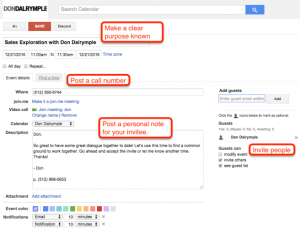Many CMOs in charge of affiliate management aren’t entirely sure what they need to run a successful program. In the best-case scenario, their programs don’t reach their full potential. But in the worst-case scenario, they become a branding liability and an actual cost center if margins and fraud aren’t properly managed.
Affiliate management means different things to different people, which can prove problematic. When CMOs perceive it as a reactive service dealing with the nuts and bolts of a program and inbound affiliate customer service requests, they’re overlooking the big-picture goals of their affiliate programs.
To effectively manage your affiliate program, you have to take a 360-degree approach to ensure you’re covering your bases. Affiliate management should entail three specific things: program strategy, program recruiting and activation, and program operations. Unfortunately, many managers fail to incorporate these key aspects, resulting in goal misalignment, wasted resources, and ineffective programs.
A retail client recently hired us to manage its pre-existing affiliate program. It had a strategy of never couponing, but after digging in, we found that coupon sites drove 100 percent of the program’s performance. The checkout page didn’t even have a coupon code box. The program was so contrary to the client’s strategy that it didn’t provide value, negatively represented the client’s brand, and drove up costs. The previous “management” firm had failed to notice this.
The Dangerous Misconceptions Of Affiliate Management
It’s difficult to determine where your management is lacking without a well-defined strategy, recruitment efforts, and operations plans in place. But if you’ve fallen into any of these traps, you need to rethink your approach:
1. You unknowingly receive basic operations. While some marketers might think they’re receiving 360-degree program management, they’re often only paying for or receiving basic program operations, which can’t fuel a successful program.
Basic program operations include inbound customer service functions with affiliates, reporting, applications, etc. It’s more ops-oriented than creative or strategic, and there’s very little marketing in this basic form of affiliate program management—and not enough compliance and fraud management.
2. You allow networks to manage your program strategy and checkbook. Many firms have turned over their entire programs to a network for “management,” which presents a serious potential conflict of interest. The network is in charge of making key decisions on the company’s behalf, but part of your strategy includes choosing which networks you should work with in the first place, tracking how they’re doing and determining what you should be paying them. Additionally, since the networks earn a fee from affiliate sales, they have financial interests that can drive self-serving decisions.
3. You’ve hired one person to handle every aspect of affiliate management. Superior affiliate management is complex and requires elements of creative strategy, business development, operations, and financial planning. It’s difficult to find those specialties in one person. Someone who’s creative and loves campaign development probably hates applications, reporting, ROI analysis, and fraud detection.
It’s also not cost-efficient for one person to do everything. You have to play to each employee’s strengths to oversee the three aspects of effective affiliate management. Assign the number crunchers to fraud and reporting, the outgoing people and those with a deep industry Rolodex to recruiting, and the creatives to ideation. Wrap all that with a high-level strategist and superior client service, and you’ll have a formula for success. By doing this, our company created a full-time equivalent comprised of people who possess the skill sets required for effective management.
4. You underestimate program recruiting and activation efforts. The recruiting and activation phase is the lifeblood of your program, but it takes time and specialized talent, relationships, and tools. If you’re paying someone who has 10 or more accounts at a time, you could actually be overpaying for insufficient management. A program can’t grow if you’re not reaching out to new, high-quality people and dedicating time and resources on a regular basis to help them gain traction.
Revive Your Affiliate Programs With A 360 Approach
If your affiliate programs aren’t meeting your goals, your management approach might be the problem. To adopt a 360 approach, start with these four steps:
1. Educate yourself on affiliate management. The first step in sufficiently managing every aspect of your affiliate program is to stay educated on the practice. FeedFront is the official blog of the Affiliate Summit and a great resource for cutting-edge ideas and opinions on affiliate marketing. ClickZ also offers news and expert commentary for interactive marketers, and the Performance Marketing Association is a trusted resource for best practices and standards in affiliate marketing.
2. Hire a reputable agency with expertise in affiliate marketing. In a constantly evolving field, your program is much more likely to produce the results you want if a team of experts is working on it. You don’t want to delegate this to an overextended in-house marketing manager with three other channels on her plate or an agency that’s similarly stretched too thin.
3. Make sure your affiliate manager has extensive experience. If your company doesn’t have the budget to hire an agency, be sure that your in-house affiliate manager has extensive experience in affiliate marketing. Require her to attend conferences and keep up with changes in the industry.
4. Keep the program controlled to start. Limit your program to a select number of partners to increase transparency, reduce management strain, and mitigate fraud risks. Don’t expect the affiliate program to become a huge contributor to volume as it’s a much better contributor in terms of ROI.
If you’re not receiving 360 management, your affiliate program could actually cost you money. Programs generally lack strategy and planning more than anything. Without this vital step, the channel isn’t integrated into your marketing plan. Don’t let your affiliate marketing programs go to waste. Tackle every aspect of affiliate management with a comprehensive approach, and you can start reaping the true benefits of affiliate marketing.
Digital & Social Articles on Business 2 Community
(323)






